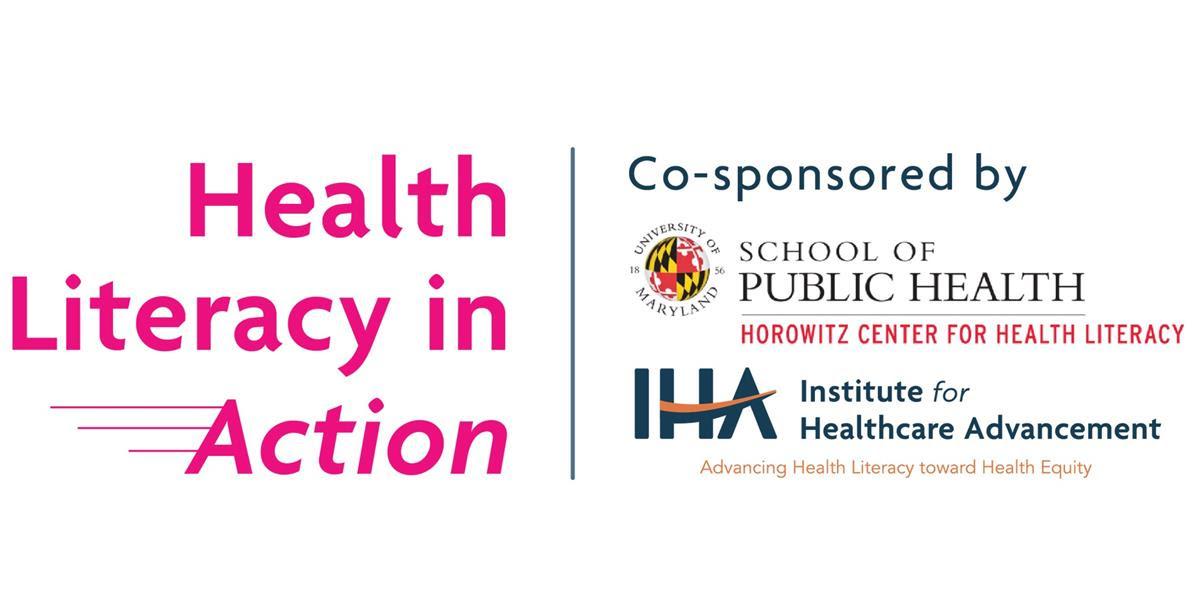2018 to Present
The Horowitz Center and the Institute for Healthcare Advancement (IHA) co-sponsor an annual Health Literacy in Action (HLiA) Conference for health literacy professionals and newcomers. The purpose of the conference is to connect ongoing health literacy research, policy, and practice.
6th Annual HLiA Conference

The Horowitz Center and IHA hosted the sixth annual HLiA conference virtually on October 3, 2023. The conference featured speakers and sessions that delivered actionable tools and skills for attendees to bring back to their workplaces. The Center was pleased to feature Maryland-based projects and speakers.
The 2023 conference materials are available now!
Watch session recordings and access slides on the conference's live event page. You can still get continuing education credits by becoming an IHA Solutions Center member. Membership is free and grants you access to many health literacy resources.
Past Conference Materials
- 2022 agenda, recordings, and slides
- 2021 agenda, recordings, and slides
- 2020 agenda
- 2019 agenda
- 2018 agenda